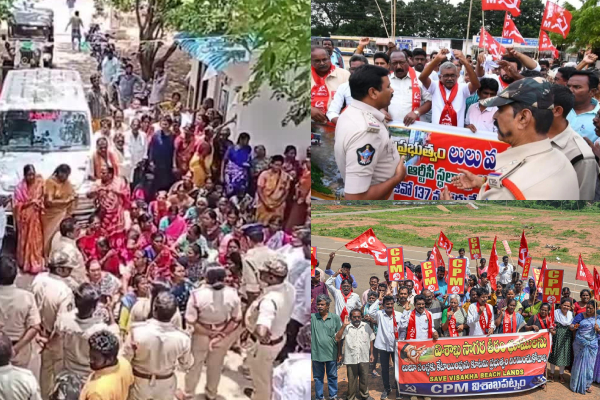Andhra Pradesh is a state that has long battled economic challenges, unemployment, and underinvestment. The TDP government has taken a bold and proactive approach to change this trajectory by attracting major national and international companies through strategic land allotments and investor-friendly policies. These decisions, however, have sparked protests in some quarters, raising concerns about land use and displacement. While such concerns deserve to be heard, it’s also important to view these policies through the broader lens of long-term state development and job creation.
The allotment of 4.17 acres of RTC land in Vijayawada to the LuLu Group is one such move that has drawn criticism. Activists argue the land has been handed over at a nominal lease amount, comparing it to market value and calling it a “giveaway.” But what they overlook is the potential return on this investment. LuLu Group, a global retail leader, brings more than just infrastructure; it brings employment, tourism potential, increased commerce, and a signal to other investors that Andhra Pradesh is open for business. In a highly competitive investment climate, states across India offer incentives to attract industries. Andhra Pradesh is simply doing what others have successfully done and rolling out the red carpet to secure economic growth.
Similarly, the land lease agreement with Tata Consultancy Services in Visakhapatnam has become a legal debate. Petitioners argued that valuable land was being leased at a negligible rate. Yet the High Court rightly observed that such incentives are common practice, especially for states in the early stages of industrial development. TCS has committed ₹1,370 crore in investment and 12,000 jobs. These are not just numbers and they represent real opportunities for local youth and a boost to the tech ecosystem. The government has clarified that this is not a sale, but a lease. Safeguards are in place, and the land will remain public property unless conditions are met.
Even in rural areas like Varikuntapadu in Nellore district, where villagers recently protested against mining operations, the government must weigh the difficult balance between environmental and livelihood concerns and the need for resource-based industries. Natural resource extraction, when done with oversight and regulation, fuels infrastructure and development. Instead of halting progress, the answer lies in dialogue that ensuring affected families are properly compensated and given opportunities in the new economy being built around them.
Critics often ask, “Why give land to corporates?” But they forget that government-owned land lying idle generates no income, no jobs, and no economic movement. When used strategically, it can power industrial growth, reduce dependency on government jobs, and lay the foundation for a modern, self-sustaining state economy. Land is an asset—but only if it’s used with vision. Andhra Pradesh is making hard decisions today to avoid harder realities tomorrow. As protests grow louder, the state must stay the course responsibly, transparently, and with an eye on the future.


































